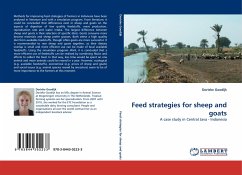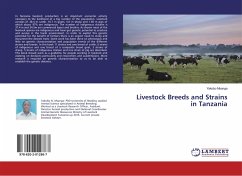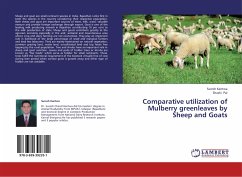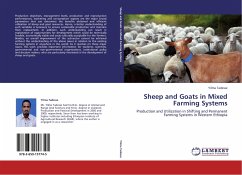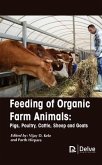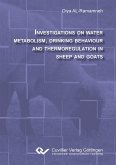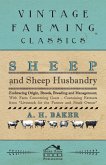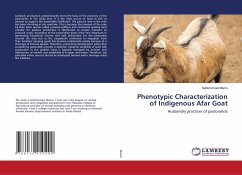Methods for improving feed strategies of farmers in Indonesia have been analysed in literature and with a simulation program. From literature, it could be concluded that differences exist in sheep and goats on the aspects of digestion of low quality feedstuffs, meat production, reproduction rate and water intake. The largest difference between sheep and goats is their selection of specific diets. Goats consume more browse materials and sheep prefer grasses. Both select a high quality diet from available feedstuffs, though often goats are more successful. It is recommended to rear sheep and goats together, as their dietary overlap is small and more efficient use can be made of local available feedstuffs. Using the simulation program JAVA, it is concluded that a more efficient use of feedstuffs can be realised by combining flocks and efforts to collect the feed. In that way, less time would be spent on one animal and more animals could be reared in a year. However, ecological (e.g.available feedstuffs), economical (e.g. prices of sheep and goats) and social issues (e.g. animal species reared by ancestors) seem to be of more importance to the farmers at this moment.

